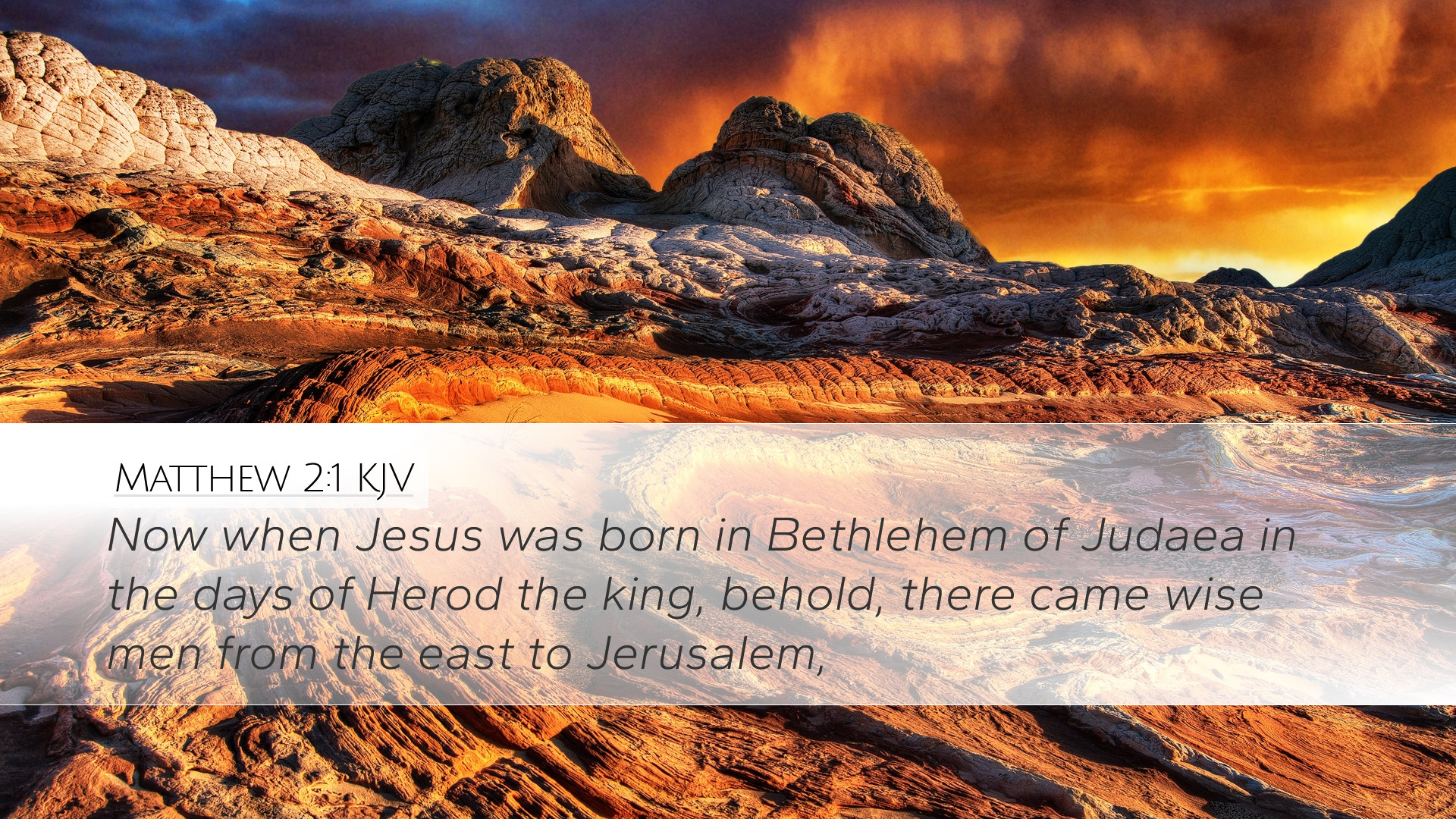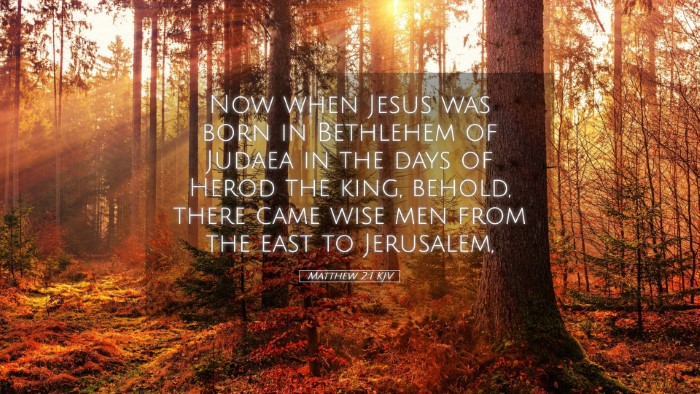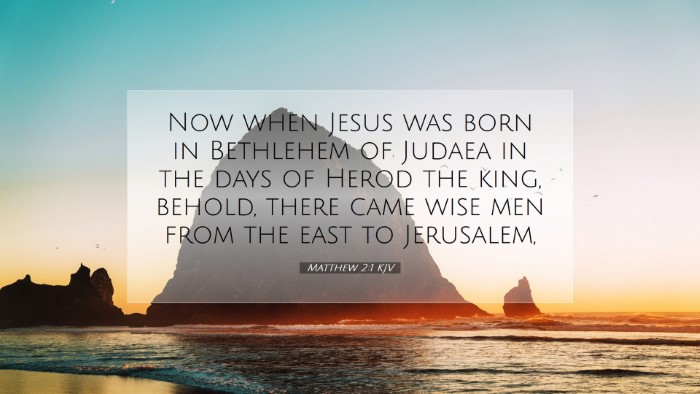Commentary on Matthew 2:1
Bible Verse: "Now after Jesus was born in Bethlehem of Judea in the days of Herod the king, behold, wise men from the east came to Jerusalem." (Matthew 2:1, ESV)
Contextual Overview
The second chapter of the Gospel of Matthew introduces a significant event following the birth of Jesus Christ. It marks the visit of the Magi, often referred to as the "wise men," who travel from the East to pay homage to the new King. This particular narrative serves not only to highlight the fulfillment of prophecy but also to illustrate the recognition of Jesus' importance beyond the Jewish community.
The Historical Setting
The timeframe mentioned—"in the days of Herod the king"—places this event in a politically charged atmosphere. Herod, known for his ruthlessness and paranoia, ruled Judea from 37 B.C. to 4 B.C. His reign was characterized by efforts to consolidate power, often at the expense of others' lives and welfare. Understanding this context allows readers to appreciate the gravity of the situation surrounding Jesus' birth.
Insights from Commentators
Matthew Henry
Matthew Henry draws attention to the fulfillment of prophecy in Jesus’ birth location, Bethlehem. He notes that the phrase "in the days of Herod" signifies a dark period for the Jewish people, highlighting how God orchestrated the arrival of His son amidst such oppression. Henry emphasizes that the "wise men from the east" were likely influenced by prophetic writings, suggesting that wisdom in seeking after God often necessitates a journey, both physically and spiritually.
Albert Barnes
Albert Barnes elaborates on the identity of the "wise men," suggesting that they were likely Persian magi or astrologers, skilled in astronomy and certain aspects of the ancient wisdom. He notes how these men were guided by a star, showcasing the divine intervention in their journey to find Jesus. Barnes reflects on the importance of their visit, positing that it symbolizes the universal interest in Christ and indicates His acceptance among the Gentiles, foreshadowing the global mission of the Gospel.
Adam Clarke
Adam Clarke adds depth to the discussion by noting the significance of Bethlehem as prophesied in Micah 5:2. He examines the nature of the star that guided the wise men, suggesting various theories, including a comet or a miraculous light. Clarke believes the emphasis here is not solely on the star but on God's hand in revealing Jesus' birth to a diverse group of people. He highlights the symbolism of the wise men bringing gifts, which reflects both reverence and recognition of Jesus' Kingship.
Theological Implications
The arrival of the wise men serves as a significant theological statement. It affirms that the gospel is for all nations, confirming God's intent for Christ to be a light not just for Israel, but for the whole world. This inclusivity is pivotal for Christians as it underscores the radical nature of the Gospel, which transcends cultural and ethnic boundaries.
Lessons for Today
- Seek Him Diligently: Like the Magi, believers are called to earnestly seek Christ, placing value on the knowledge of His presence.
- Worship in Humility: The Magi's homage illustrates the appropriate response to Jesus’ Lordship – a posture of humility and reverence.
- Recognize Divine Guidance: The journey of the wise men reflects the importance of spiritual guidance in the form of signs, Scripture, and ultimately, the Holy Spirit in a believer’s life.
- Embrace Diversity in Faith: The involvement of Gentiles in recognizing Jesus as King sets a precedent for Christians today to embrace diversity within the body of Christ.
Conclusion
Matthew 2:1 serves as a pivotal verse that encapsulates the arrival of Jesus into the world and the profound implications of His birth. Through the lens of various commentators, we see a multifaceted understanding of this event, rich with historical, theological, and practical significance. As pastors, students, theologians, and scholars continue to reflect on this passage, it remains a powerful reminder of God’s sovereignty and the universal call of the Gospel.


